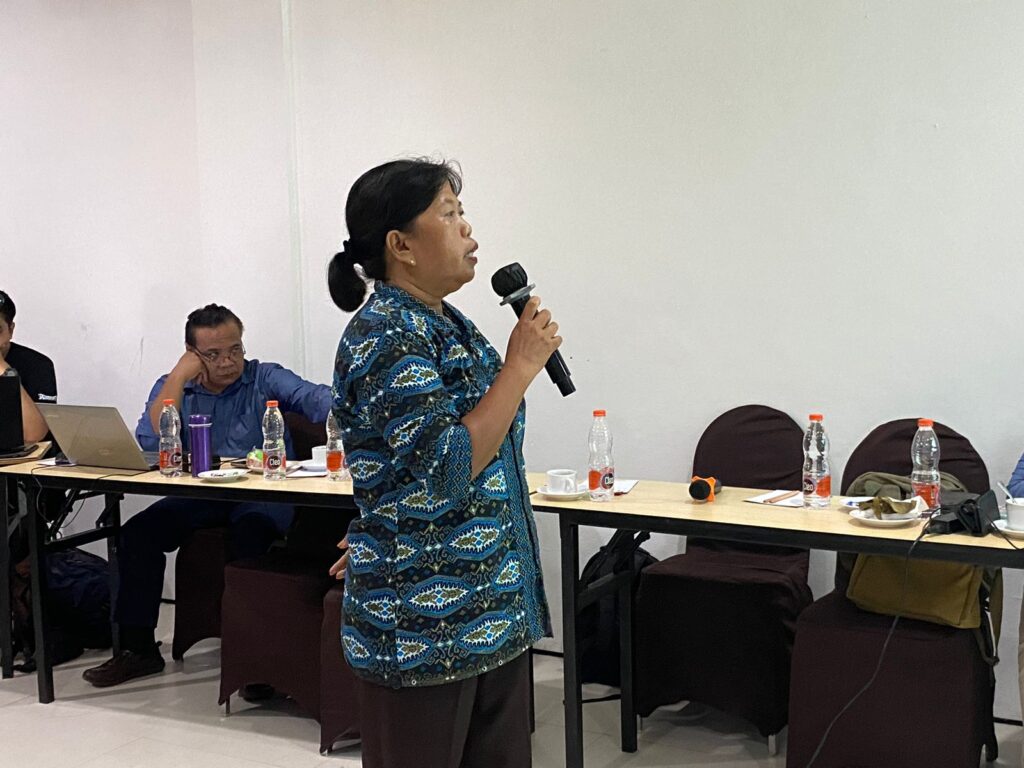Central Kalimantan has witnessed a number of Forest and Land Fires (KARHUTLA) incidents that hit its area repeatedly. Including in 1997-1998, 2015, 2019, and most recently in 2023. The impact of forest and land fires not only damages the environment and land biophysics, but also results in the socio-economic decline of the community.
Prevention efforts have been initiated through various legal instruments. Such as laws, government regulations and regional regulations, including PERDA Number 5 of 2003. Which was later revised to become PERDA Number 1 of 2020 concerning control of KARHUTLA.
However, for the Dayak Ngaju Traditional Law Community (MHA), especially in peat areas, this policy has two contradictory sides. On the one hand, this regulation is the legal basis for carrying out forest conservation projects and enforcing sanctions against forest burners. However, on the other hand, this policy also affects the farming culture which is an integral part of people's identity. The tradition of farming is not just about looking for food, but also implies the cultural and economic sustainability of the Dayak Ngaju family.
According to the results of the study from the 2023 Village Discussion, the Dayak Ngaju community historically did not farm in peat areas. However, they tend to farm on embankments or mature peat soil. Farming on a scale of 2 hectares can produce 100 grains of rice, sufficient for the food needs of a family of 4-5 people for three years. As well as being a source of income that can reduce children's education costs.
However, since the enactment of the PERDA, farming activities in peat areas have stopped. This has a broad impact on people's lives. Such as loss of livelihood, food insecurity, erosion of local culture, and dependence on government assistance (Village Discussion 2023). The food security programs introduced by the government to overcome this vulnerability have not been optimally successful.
The results of a study by the Indonesian Betang Borneo Foundation (YBBI) in 2023 show that these programs are not running in a participatory manner. It is not suitable for the biophysical conditions of the land, and does not take into account the cultural aspects of the Dayak Ngaju Customary Law community in land management, especially in peat areas.
Protection and maintenance of the Right to Life of the Dayak Ngaju Customary Law Community by considering local wisdom in sustainable management of natural resources is reflected in the implementation of PERDA Number 1 of 2020 concerning Recognition and Protection of Customary Law Communities in Pulang Pisau Regency. However, ecosystem sustainability can only be achieved if land management is able to accommodate economic and ecological interests in a balanced manner. Especially in the context of critical peatlands.
Facing this challenge, collaborative steps are crucial. YBBI, through the ESTUNGKARA-Kemitraan program, has led efforts to strengthen the food security system for the Dayak Ngaju Traditional Law Community in Central Kalimantan in general and Pulang Pisau Regency in particular. Focus Group Discussion (FGD) involving coalitions from various parties such as civil society organizations (CSOs), universities, and women's groups from YBBI assisted areas, became a forum for evaluating and developing concrete solutions to the food vulnerability faced by the Dayak Ngaju indigenous community.
With this approach, it is hoped that the policies and programs implemented will be able to respect and take into account local cultural values. As well as the wisdom of indigenous communities in efforts to achieve sustainable food sovereignty in Central Kalimantan.
These steps need to be supported by full commitment from various parties to create inclusive and sustainable policies. Considering the importance of harmony between humans, ecosystems and culture in managing natural resources.


